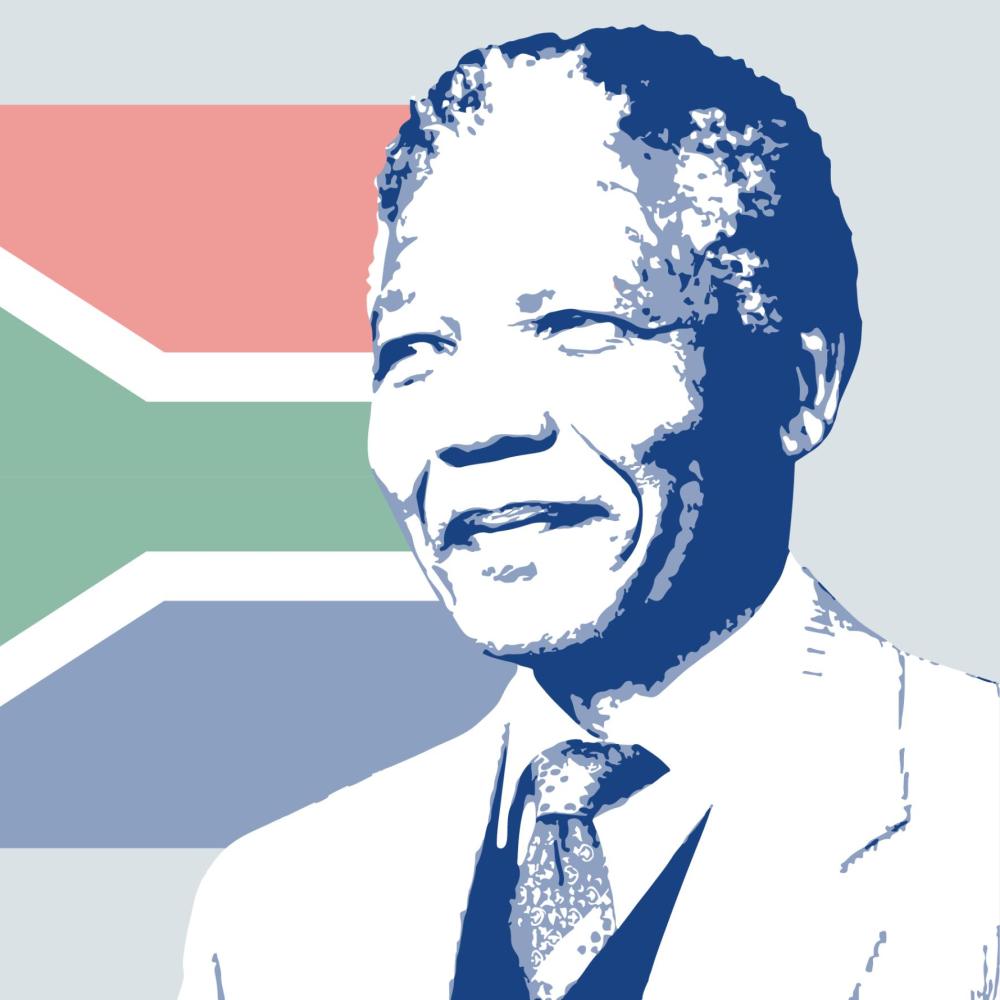

Nelson Rolihlahla Mandela (°18 juli 1918 - 5 december 2013)
Profession: politician and anti-apartheid fighter
Nationality: South African
Why an honorary doctorate?
On 8 October 1993, Rector Robert Dejaegere presents the honorary doctorate of VUB to Nelson Mandela and Frederik Willem de Klerk, who was then president of South Africa.
Equal human rights and democratic values
ULB had previously awarded Mandela a doctor honoris causa, but he was still serving his prison sentence at the time.
VUB honours Mandela for his peaceful struggle for equality, the welfare of the South African black population, and his intense involvement and solidarity with oppressed peoples worldwide. Mandela's unbridled commitment to equal human rights represents the democratic and humanist framework of values that VUB promotes.
The winner is a dreamer who never gives up.
No other prominent figure so inspires the world with reflections that prompt new (self) reflections. Nelson Mandela was not a dreamer but an idealistic pragmatist. He embodied, at every level, the belief that honesty and dialogue are the peaceful way to equal rights for all people. Mandela had an unshakeable faith in the power of empathy. His famous "A winner is a dreamer who never gives up" symbolises the faith he continued to have in everyone's potential. And in himself. As long as you see the good in others, the chance of those same others showing their good self is no longer an illusion. The outspoken democratic values and the pursuit of insight and enlightenment that characterise VUB merge with Mandela's message of hope and respect. Not blindly but with a healthy, critical eye. Not naive but with an open, hopeful mind.
"A winner is a dreamer who never gives up."
About his career
Fight against apartheid
Mandela devoted 67 years of his life to his dogged fight against apartheid. In 1943, he joins the African National Congress (ANC), a political movement that defended the black population during apartheid in South Africa. He takes part in several peaceful acts of resistance, but after the Sharpeville Massacre in 1961, he loses his faith in a non-violent approach. He co-founds the armed wing of the ANC, which carries out sabotage actions against government agencies symbolising apartheid.
Almost 27 years of imprisonment
In 1962, Mandela is arrested and in 1964 he receives the verdict: a life sentence. He is imprisoned on Robben Island in South Africa for 18 years, where he becomes the symbol of the anti-apartheid movement. Despite relentless public calls for his release, it is not until 1990 - after almost 27 years in prison - that Mandela can call himself a free man.
Nobel Peace Prize
In 1993, he is awarded the Nobel Peace Prize for his peaceful efforts to abolish the apartheid regime and lay the foundations for a new, democratic South Africa. Then-president Frederik Willem De Klerk shares in the prize. After the apartheid regime is officially over, free elections follow. Mandela is elected as the first black president of South Africa.
In 2007, he joins The Elders, where he and other world leaders seek solutions to problems such as AIDS, war, and hunger.
What is an honorary doctorate?
VUB has awarded honorary doctorates every year since 1978 to personalities from the most diverse backgrounds who have made a remarkable contribution to their field and to society. From this solemn moment of recognition, they bear the honorary title of Doctor Honoris Causa of VUB.